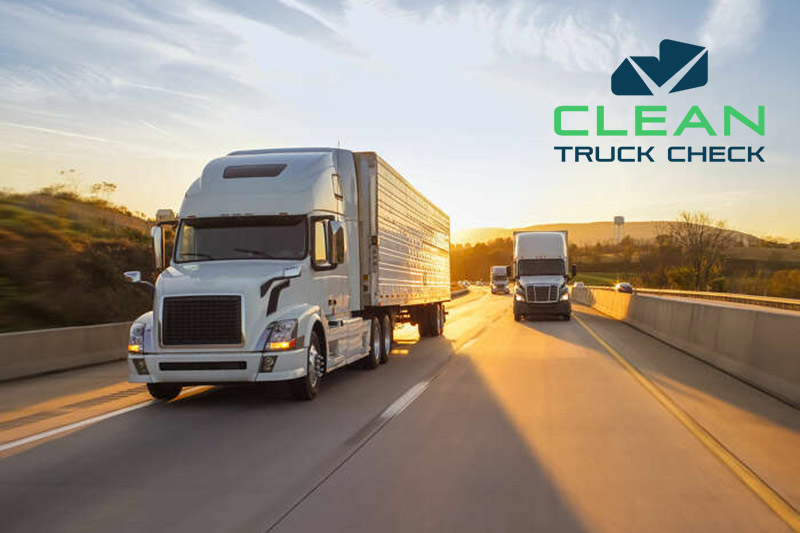
Senate Bill 210 (Leyva; Chapter 298, Statutes of 2019) directed CARB to develop and implement a comprehensive heavy-duty vehicle inspection and maintenance (HD I/M) regulation to ensure that vehicles’ emissions control systems are properly functioning when traveling on California’s roadways. The Board approved the regulation on December 9, 2021, with implementation to be phased in starting January 2023.
Dubbed the Clean Truck Check, the program combines periodic vehicle testing requirements with other emissions monitoring techniques and expanded enforcement strategies to identify vehicles in need of emissions related repairs and ensure any needed repairs are performed. When fully implemented, the program will provide significant reductions in smog-forming and carcinogenic toxic air pollution necessary to achieve federal air quality mandates and healthy air in California’s communities.
In August, 2023 the California Air Resources Board (CARB) published additional guidance for the implementation of Clean Truck Check requirements under its Heavy Duty Inspection/Maintenance regulation. The requirements build on implementation guidance issued in June and set deadlines to achieve compliance with certain requirements beginning by December 31, 2023. Fleet owners and operators, and those contracting or brokering loads with heavy-duty trucks, should take note of CARB’s implementation timeline and prepare to comply with reporting and fee payment requirements beginning in the fourth quarter of 2023.
The next phase of Clean Truck Check includes vehicle reporting and payment requirements. Fleet owners must establish an account and input vehicle information into CARB’s online system from October 1 through December 31, 2023, based on CARB’s current anticipated timeline. Beginning January 1, 2024, fleets must be compliant with reporting and compliance fee payment requirements to legally operate in California. CARB’s new guidance signals that following completion of the reporting and compliance fee payments, vehicle owners would have access to a vehicle’s compliance certificate through the database system, which would serve as proof the vehicle has met the requirements. This means that certain companies (as defined in the regulation) contracting or brokering with regulated fleets must ensure that those fleets comply with Clean Truck Check standards, including by maintaining a valid CARB certificate in the contractor or broker’s records. Companies are subject to enforcement if they do not meet the requirements.
CARB estimates that following the reporting and payment deadlines, heavy-duty vehicle emissions testing will begin in July 2024. Vehicles generally must submit to biannual emissions testing in specified months throughout the year based on their registration or vehicle identification number. Only one test will be required in 2024, with two tests required beginning in 2025.
About The Clean Truck Check program
Under the Clean Air Act, CARB is responsible for developing statewide programs and strategies to reduce smog-forming and toxic pollutants emitted from mobile sources. Heavy-duty diesel vehicles greater than 14,000 pounds are major contributors to California’s air quality challenges. These vehicles still contribute the majority of on-road NOx and PM 2.5 emissions, despite significant efforts by CARB over the last 40 years to reduce NOx and PM emissions from this sector. Previous efforts include regulations and programs for new engine standards, manufacturer warranties, and durability requirements for emission control components; in-use truck rules to accelerate fleet turnover; and incentive programs to promote innovative low- and zero-emitting technologies.
Modern heavy-duty diesel vehicles are equipped with after treatment systems like diesel particulate filters for controlling PM and selective catalytic reduction for cutting NOx emissions. However, when emissions control components malfunction, this may result in emissions increases that can stall efforts to achieve clean, healthy air in California’s communities. The Clean Truck Check will ensure heavy-duty vehicles operating in California are well-maintained and repaired rapidly when needed, and promote a level playing field for the businesses that operate them.
Through an integrated strategy combining roadside emissions monitoring to screen for potential high-emitting vehicles, improved emissions testing procedures using on-board diagnostics data, emissions checks and data reporting at required intervals, and compliance verification requirements for freight contractors, seaports, and railyards, the regulation is one of the most impactful regulations approved in recent CARB history. When fully implemented, the regulation is projected to cut statewide NOx emissions by over 81 tons per day and PM emissions by 0.7 tons per day in 2037. Together, these emissions reductions will result in over 7,500 avoided premature deaths.